The following content may contain affiliate links. When you click and shop the links, we receive a commission.
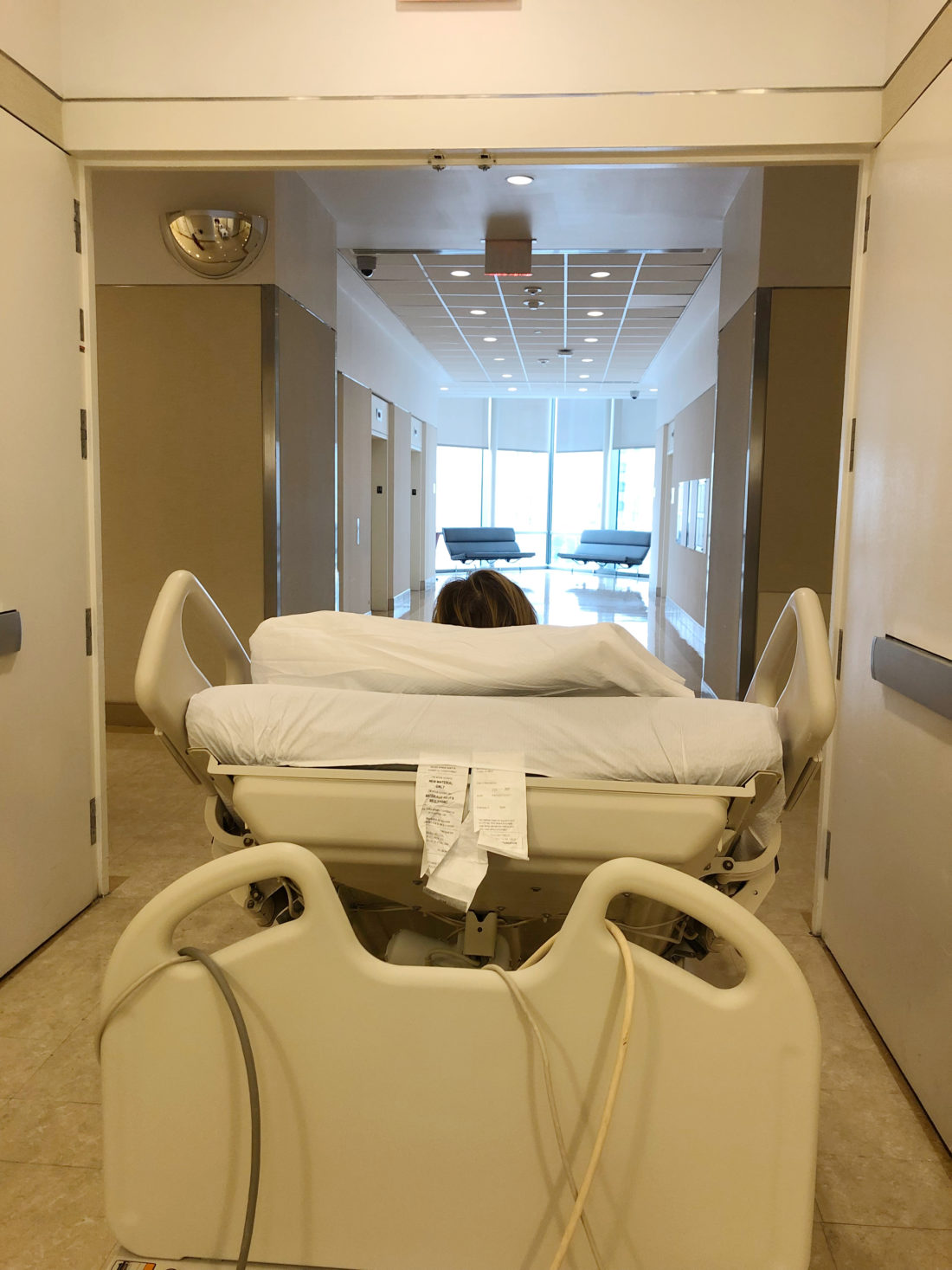
by Nell Diamond, Founder & CEO of Hill House Home.
I am 25 years old when I find out my mom has cancer. It is July and I am selfish. I am four-months-engaged and I wear my shiny ring like a medal. I am halfway through business school and I want everything in my life to feel neat, orderly, tightly controlled. At my summer internship, I sit in a windowless room, thumbing through Excel tabs, silently panicking. I think a lot about my eyebrows. I think a lot about 401ks.
It is a Tuesday afternoon when I get the call. I have spent my morning clawing through speed bumps that I have set in my own way. I have straightened my wild, curly hair to submission. I have completed all the daily reports at work by noon. I have sent all the right texts in a group chat. I have successfully avoided a single ounce of gluten at lunchtime.
At 3:03 pm, my dad calls me. Six blocks away from the office I sit in, my parents tell me about the cancerous lump found in my mother’s body. I imagine my dad seated partially on his desk, knees three-quarters bent, back barely touching the rows of family photos behind him. My outburst feels like vomit, but the liquid is coming out of my eyes. I see my boss staring at me. I think I hang up. I think I tell my boss, “My mom has cancer.” I think I run to the door. I have no idea how I get home.
That night, I walk along the West Side Highway with my fiancé and feel irrevocably marked. I want to tell the man at the bodega. I want to scream. I want to lie down on the sidewalk and feel the hot, dirty concrete. It is July and I decide the world has ended.
Six years later, my Seamless food delivery app auto-corrects my address to New York Presbyterian Hospital when I order a salad to my desk downtown. Despite our frequent trips to the hospital, my mom is doing well. Her radiation worked. She has been cancer-free since a few months after diagnosis. She had a successful double mastectomy and reconstructive surgery. She has also had setbacks that brought us back to the East River. Endless infections and complications that rushed her to the ICU. Mornings spent removing drains from her body. Afternoons spent putting them back in.
Caring for my mom in these years has shifted the course of my life. I have learned that the worst things in life are often those we cannot prepare for, cannot control. They’re the things that kick me in the stomach at 3:03pm on a Tuesday, the things that defy rationality. There are no foolproof ways to avoid trauma, and disaster, and sadness. We can, however, give ourselves the best possible foundation – both mentally and physically – to deal with these inevitable traumas. We can also control the way we show up, and respond, in these moments where it feels like the world is ending.
Below, just a few of the lessons I will carry with me:
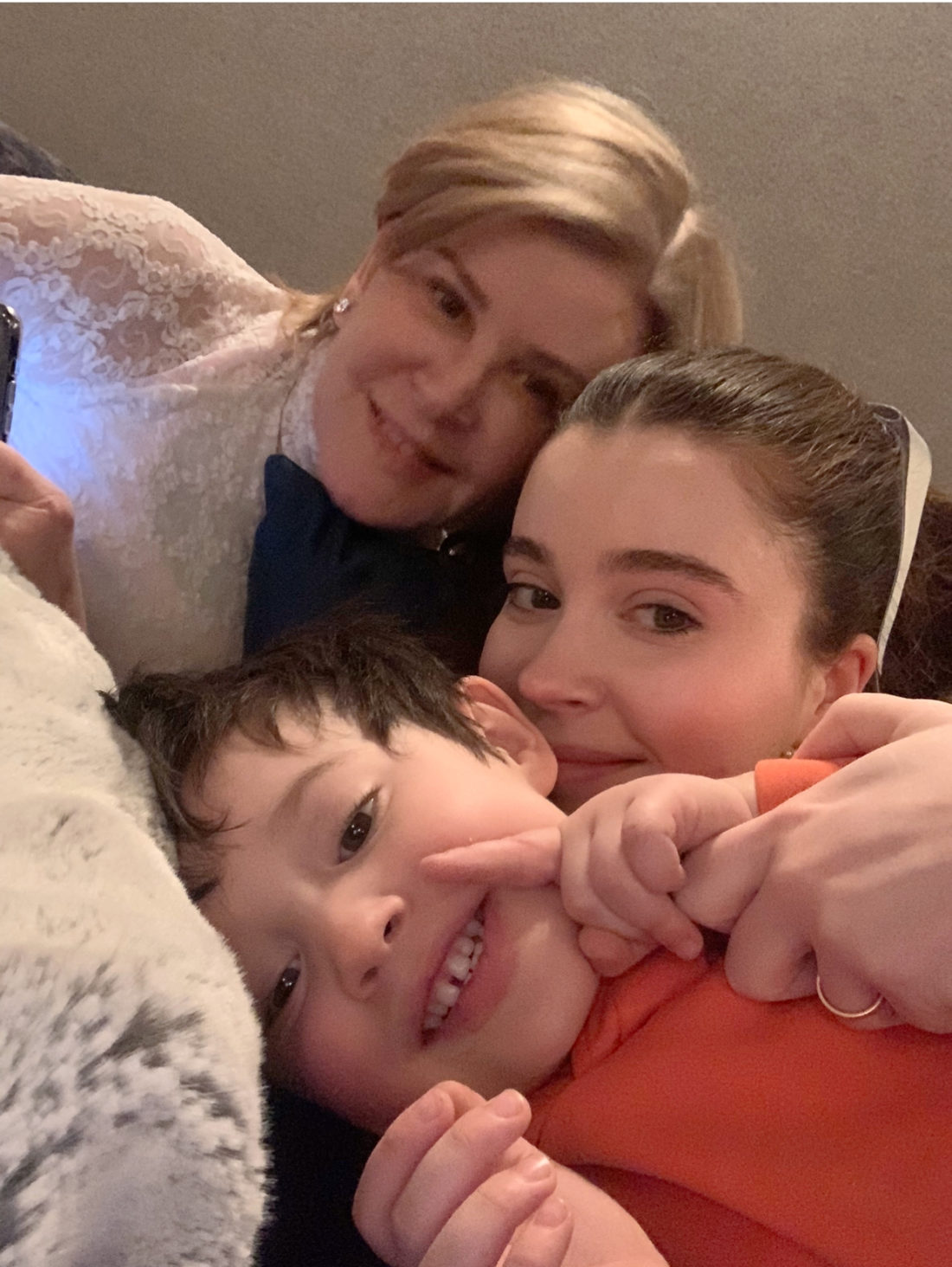
Kale cannot stop you from getting cancer
No matter what your favorite wellness blogger tells you, no amount of green juice will prevent cancer. My mom has been eating organic, healthy, whole foods for her entire life. She has worked out and avoided the sun. She does not smoke or drink. Before her diagnosis, I’d often thought of sickness as something that happened to people who were careless with their bodies. I couldn’t understand how this could happen to the healthiest person I know.
In the years post-diagnosis, the wellness industry was thriving. At first, many of these new influencers and companies made me mad. Everything was supposed to protect you from sickness. All I could think of was how my mom did everything right, and STILL got sick. While I got mad, my mom was calm and rational. During treatment, she leaned into her usual healthy lifestyle, taking long walks across Central Park to her daily radiation, and stocking her fridge with her favorite snacks: raspberries, carrots, celery sticks, chicken soup. She did pilates and swam and smiled her way through the Upper East Side throughout her treatment.
Two years later, after more than sixteen surgeries, my mom’s doctors told us in no uncertain terms that she was able to survive because of her healthy lifestyle. Decades of taking care of her health had provided a solid foundation for recovery during trauma. Late at night, looking out over the East River, I thought about my own relationship with my body, and how I’d always made healthy choices as a way to punish and restrict; I’d spent years drinking green juice in order to tame my body into submission. Years choking down chia bars to fit into a sample size. Years walking home instead of taking the subway to get that extra calorie burn, hoping it might make a boy text me back. It’s no exaggeration to say that my mom’s cancer journey revolutionized the way I think about my body. When I eat healthy, whole foods, I see it as a gift to my body that I’ll be benefitting from for decades. When I walk home from work, or take a barre class, or stretch, I do it because it feels good, and because I am so grateful to be able to move. A healthy lifestyle won’t prevent cancer, but it might help you survive it.
Hospitals have regulars, too
In the beginning, it felt like every moment at the hospital would be hot, urgent, desperate. I imagined directing my cab to 68th and York and receiving back a knowing glance, an offer of hope, a conversation I’d try to avoid; “Yes, it’s very difficult,” as I cast my eyes downward. I imagined rushed drop-offs, sprinting through the halls, tears, hugs, shouting at every corner. I imagined this because I felt it: hot, heavy panic. The real truth of the hospital, though, is different. After a month of holding my mom’s hand for radiation treatments, I could tell the difference between a first-timer and a regular at the hospital.
First-timers are filled with passion and panic in the cafeteria. They take up space at the salad bar, they sit eight-to-a-table over coffee, heads in their hands. They field loud, urgent phone calls with relatives in tiny, crowded hallways. They cry. They travel in packs.
The regulars are so used to the hospital that you barely notice them. They glide through hallways and always know which elevator to avoid. I’ve watched mothers with bald six-year-olds thumb through magazines as they adjust a feeding tube. Regulars look sad, or happy, or bored, or restless, or any number of the full range of human emotions — because this is their life, now.
On the day of my mom’s first surgery, I held her phone and sat in a small waiting room next to my dad. I channeled my nervous energy into worrying about lunch. Specifically, would my dad eat it? I took the slow elevator to the lobby to handle fruit salad and think about my mom’s body being sliced open. I wanted to scream. I thought a lot about the pretty surgeon in a cold room with my mom. I wanted to ask her about humanity, about the hard things she does, about what she ate for lunch, about whether my mom’s life would ever be the same again.
Slowly, I became a regular. I figured out which tiny hallway has the best service for a private phone call. I now know which days the pizza is best, and exactly what time it goes out for the lunch crowd. I know that on a specific day each month, you’ll find doctors and hospital employees stationed by the checkout, swiping in visitors for a free meal. Their meal cards have expiring credits, so they’ll stand by the register swiping away. “You get a yogurt! And you get a yogurt!” I know that hospitals have weekends, too, even though this feels impossible. I know that on Saturday mornings it can feel like you are the last few people on earth, alone in the giant of a building on the East River.
My mom’s diagnosis felt urgent, horrific, permanent, life-changing. I saw sickness and health as a binary. I imagined the only way that I’d begin to be a regular at the hospital was if the cancer didn’t go away. Six years after her initial diagnosis, the hospital is still a huge part of our lives, despite the fact that she has been cancer-free for years. I realize now that the journey between sickness and health has so much nuance. For years, my mom’s been existing somewhere between these binaries. As the medical field continues to progress, I imagine that many of us will experience times as Hospital regulars, too. Rather than defined periods of sickness and health, we will move in and out of grey areas, not quite totally healthy, but not totally sick, either. And if you do find yourself a regular at the hospital in one phase or another; remember — it’s OK to laugh sometimes, and cry sometimes, and just exist. And always warn others about the slow elevator.
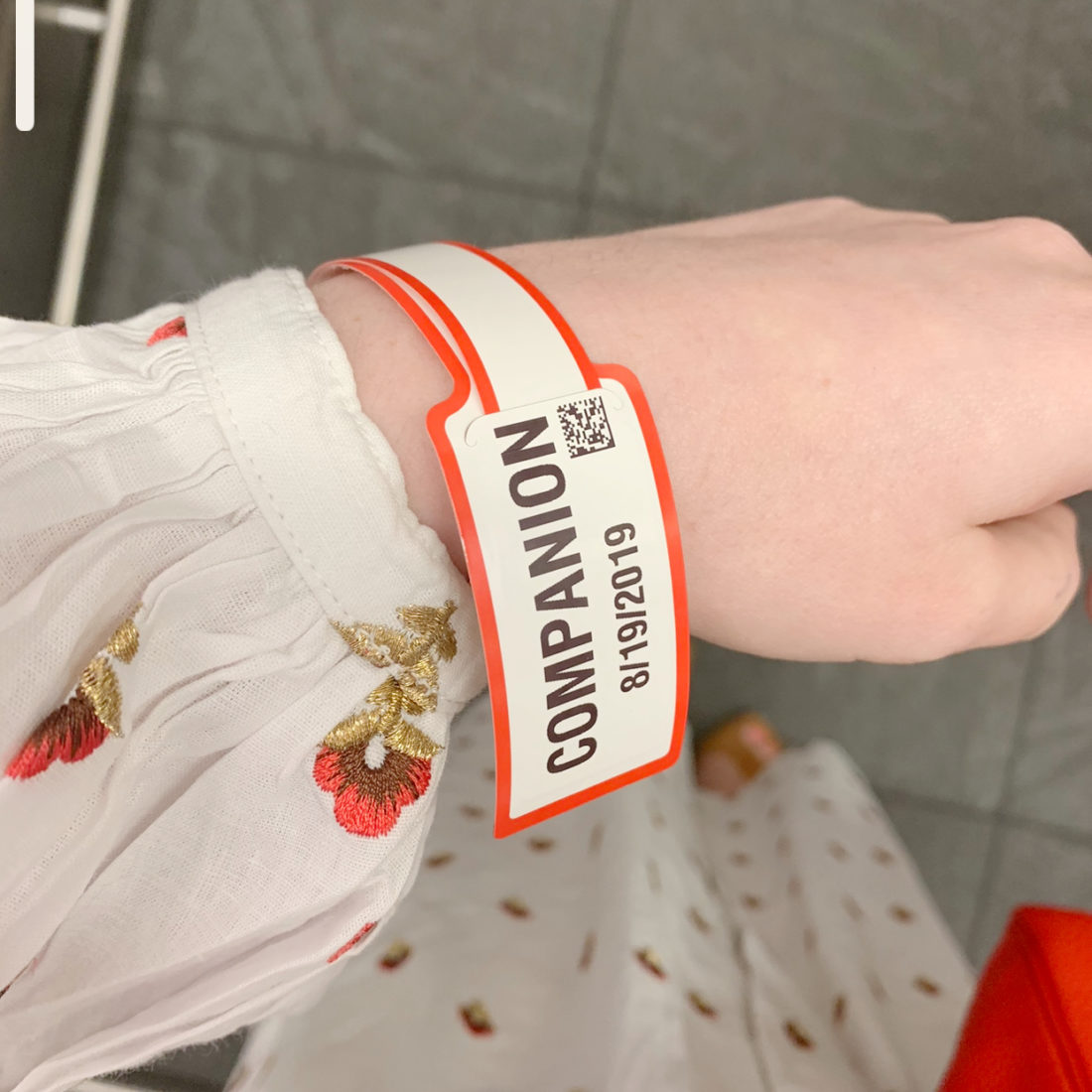
You never know what a stranger is going through
On some of the toughest days of my mom’s journey, I felt like I could barely walk. In March of 2019, my mom was hospitalized with a severe infection two hours after I saw her looking completely healthy. She had collapsed at her apartment with my dad, and was suddenly in the ICU. When I heard, I was eating a fish taco with my husband and my toddler, and thinking about what movie to watch. When I picked up the phone and heard my dad’s voice, I felt so sad and so scared I could feel it in my fingernails. My husband took my son back home and I spent a forty-minute Uber ride shaking I was crying so hard.
On days like this, I literally couldn’t believe I was allowed out in public. I couldn’t believe I was trusted with things like Metrocards and heavy doors and walking down the street. I felt like I should be wearing a sign on my head, “MY MOM IS SICK AND I’M REALLY SCARED” so people would understand why I had forgotten how to function as a human.
So many people showed me real compassion, even though they had no idea if I was just a morose woman in a bright blue coat who hadn’t figured out how to work doors. It made me reconsider the messy human interactions that often frustrate me; when someone cuts me in line at the coffee shop, or walks too slow on the sidewalk, or seems to completely misunderstand how many seats they’re taking up on the subway. Now I imagine how many of us are walking around the universe, forced to participate in normal human interactions like nothing at all is wrong. I’ve heard it a million times – “you never know what someone’s going through” — and now I know it even more.
Hospital Employees are human too
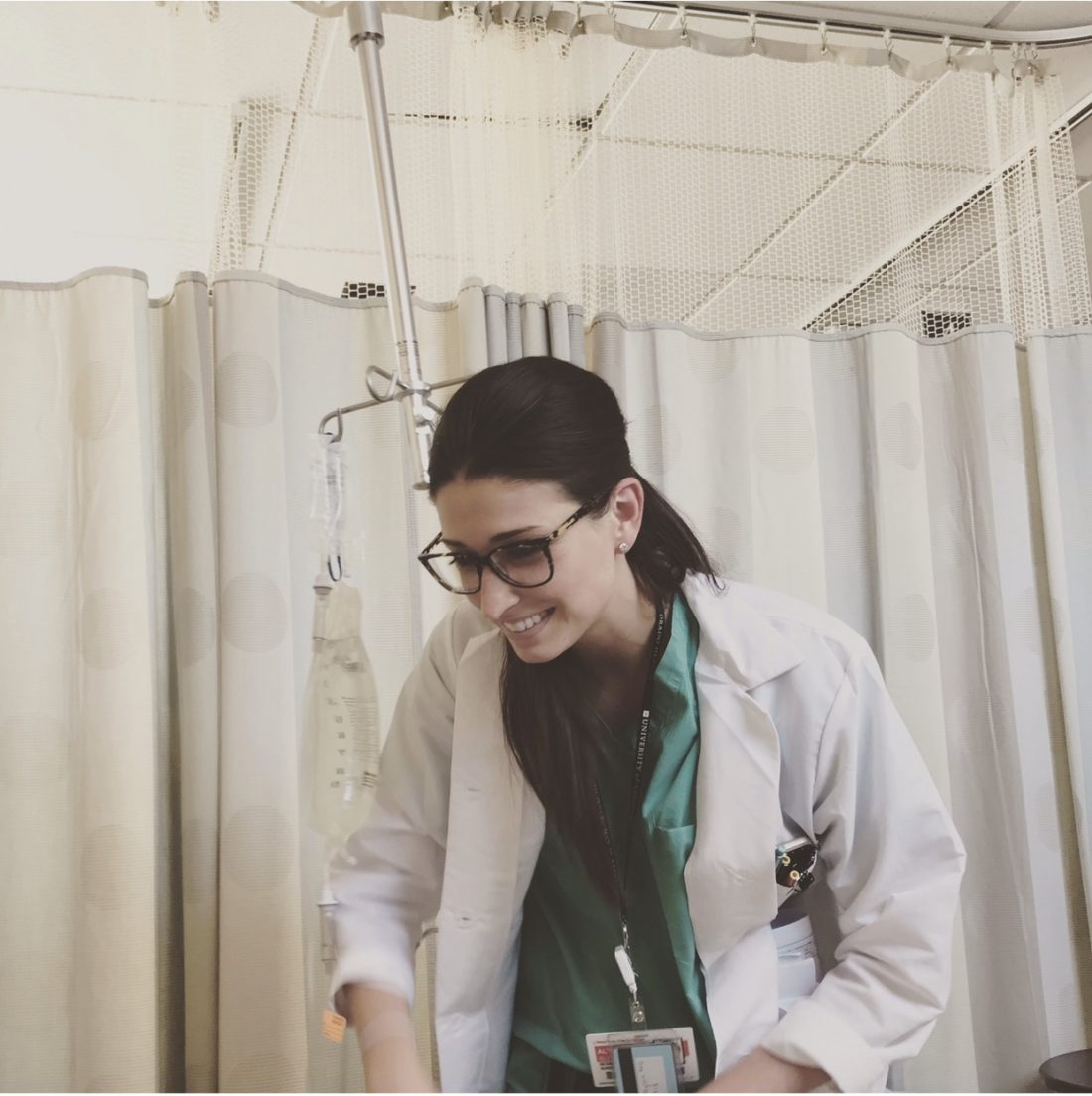
In a very lucky coincidence, my best friend since middle school, Alyssa, was a resident at the hospital treating my mom. During treatment, my mom mentioned Alyssa constantly, repeating her name like a mantra. Each time, I felt like I was back in my shiny high school gym, watching Alyssa bound between baskets on her long legs, my mom beside me. “That’s our girl!”
Alyssa was a surgical resident, and my mom insisted that Alyssa scrub in for her double mastectomy and reconstructive surgery. She would not hear my embarrassed protests. “Mom, I don’t think that’s how it works…” As usual, my mom’s calm, kind, loving will persevered, and the pretty surgeon saw “no problem at all” with having Alyssa scrub in. I wondered whether this was too much for my sweet, smart, ambitious best friend and her big, bold, scary new job.
I did not cry on surgery day until I saw Alyssa walk into the recovery room. I was holding my mother’s hand as she lay like a kitten, purring under blankets and sipping ginger ale through a straw. I saw Alyssa from afar, six feet tall and decked in bright blue scrubs. Her face was the same smiling 13-year-old who made fun of my shoes on the school bus. The same best friend who winked and walked down the aisle at my wedding just a few steps in front of me. Alyssa seemed nervous, and this almost killed me. She was smiling, and cheery and bounding with energy, but she seemed nervous. She was flipping from cold clinical medical facts to inside jokes from middle school. It was like she is in my kitchen, long legs folded on the counter, plowing through a stash of cookies and gesticulating wildly talking about a crazy neighbor. But she had just seen the inside of my mother’s body, just watched two organs get sliced off.
Throughout my hospital visits, I was overcome by the realization that every nurse and doctor and PA and janitor is just like Alyssa, with likes and dislikes and quirks and families they return home to after a shift of seeing people on the worst days of their lives. My mom was cared for by so many kind, caring, thoughtful, brilliant humans — from the lovely man who brought her soup to the infectious disease specialist who loved to scream “Well Jennifer, you’re not dying,” every time he walked in the room. Spending time in a hospital can be frustrating for a million reasons, but I am forever indebted and grateful to the incredible men and women who are true hospital regulars, and bring such kindness to their jobs.
Perspective is a gift
I was 25 and selfish when I found out my Mom had cancer. 25 and selfish and inconvenienced by everything. 25 and selfish and deeply insecure — about my life, my friends, my career, my very being. I worried constantly about what people thought of me. I over-analyzed something I’d said in a meeting for weeks. I worried, and worried and worried. I’d spent my entire life overcompensating for this deeply held insecurity: spending an entire weekend on homework, staying up until 3 am on weekdays studying for tests. Critiquing my body in the mirror and obsessively counting calories. Trying on hobbies, likes and dislikes based on people who I thought were “cool.” I thought I could control everything. If only I got into the right college, got the right job, fit in the right size jean, hung out with the right friend group, everything would be fine. There was always more to do, more to achieve.
When my mom got sick, I was humbled beyond words. My Mom needed me, but she didn’t need my M.B.A or my friend group, or my skinny jeans. She needed my love and care. She needed us to hold hands when the lights went off. She needed me to push my tiny little cot right next to her big hospital bed. She needed me to sit very close to my dad on a brown leather couch in the waiting room, and make sure he had a fruit cup and could figure out how to work the Wifi.
There are so many things I missed because I was in the hospital. Bachelorettes. Birthdays. Nights with my new baby. Conference calls. Meetings. My toddler’s first spring break. At night, with the machines beeping, scrolling through Instagram Stories, I thought of how 30 years ago, a block from where I sat, my thirty-year-old mother paced up and down York Avenue, waiting for another blood test or ultrasound or egg retrieval. I thought of how she explained to coworkers and friends that she was trying this experimental new treatment called In vitro fertilization, and how she knew in her heart it would bring her her baby. I thought of how my mom fought for me before I even existed, how she bled and cried and researched and begged and injected herself with long, spiny needles and figured out how to find me. And how she’s been fighting for me every single day since.
Caring for my Mom gave me the kind of perspective I might have spent my whole life fighting for otherwise. I spent 25 years convinced that I could micro-manage the pieces of life to insulate myself and my family from anything. There are things in life, though, that we cannot control: the way tabloids talk about women’s bodies. The way cancer shows up in a body. The way people react to us. There are things we can: the way we treat strangers on the subway. The way we nourish and protect our brains and our bodies. The way we show up for people who we love. Each time I looked out onto the East River, I knew this was exactly where I was supposed to be.
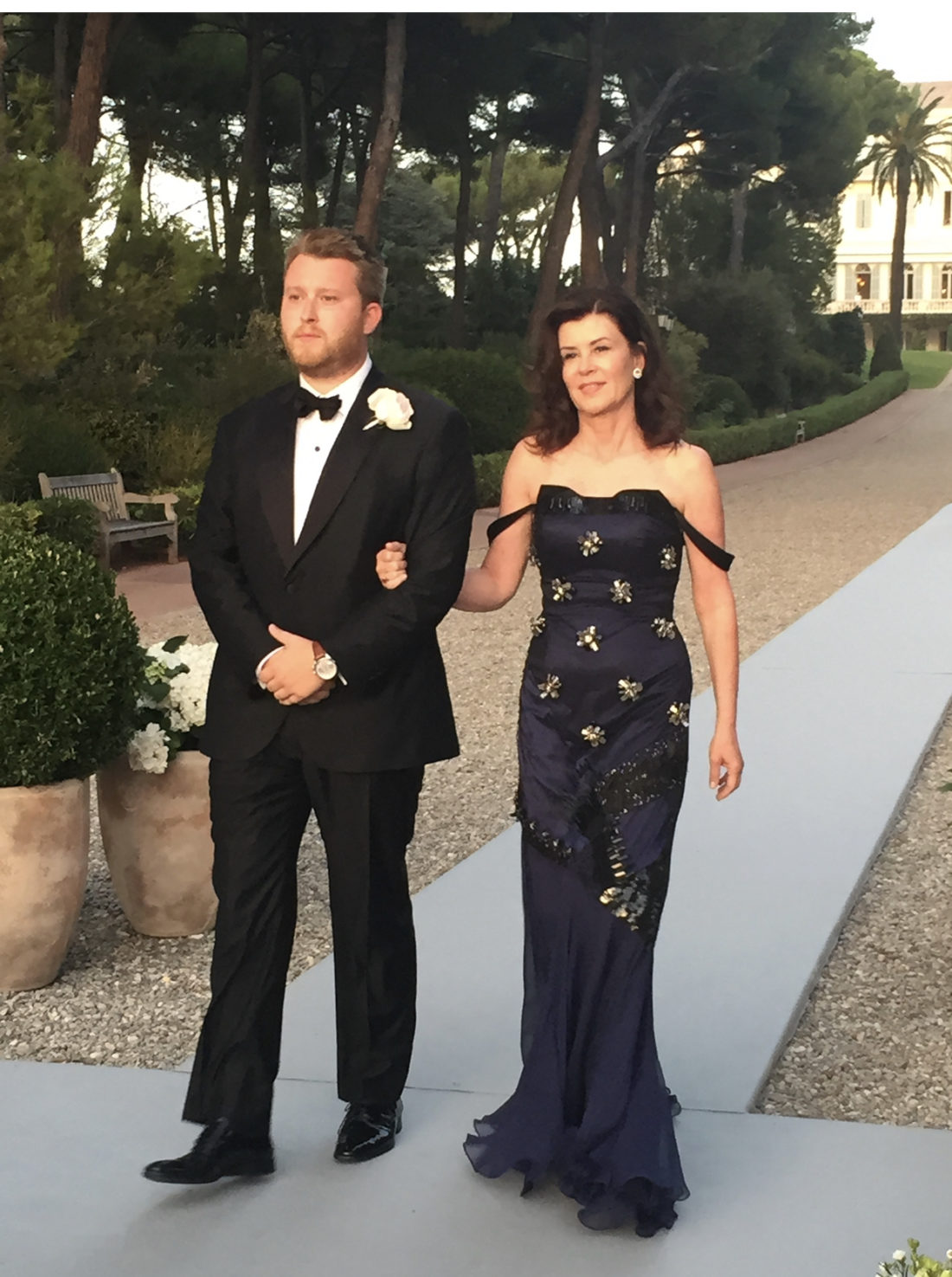
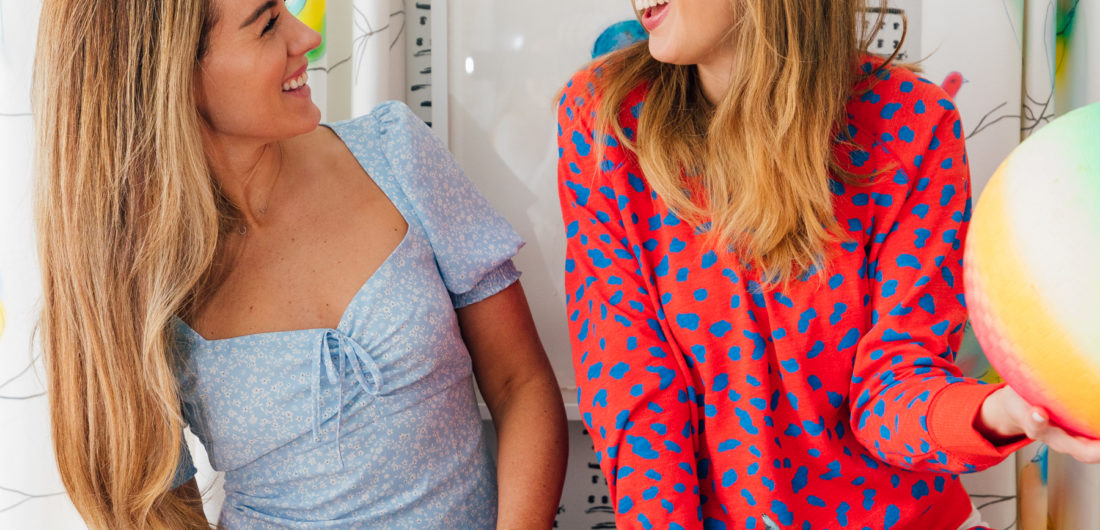
Your reflection on caring for your mum during her cancer treatment is truly touching. It’s inspiring to see the strength and resilience you’ve shown during such a challenging time. Thanks for sharing your journey and the valuable lessons learned along the way.